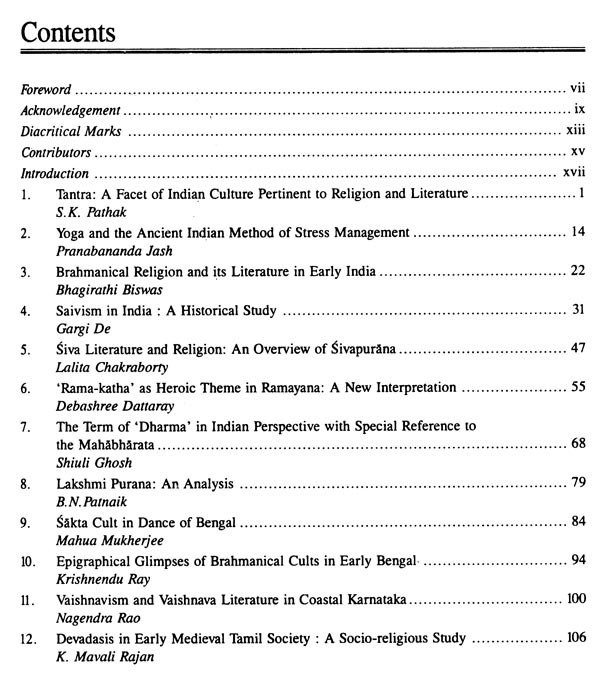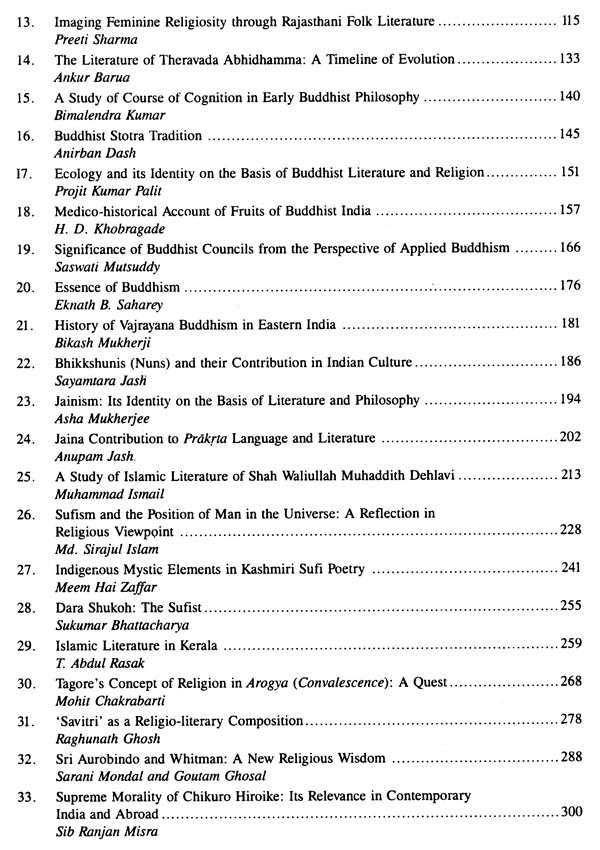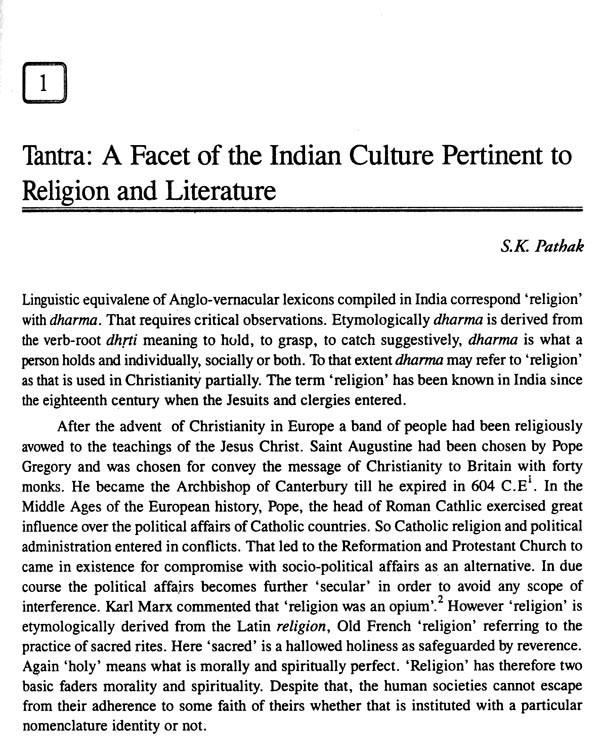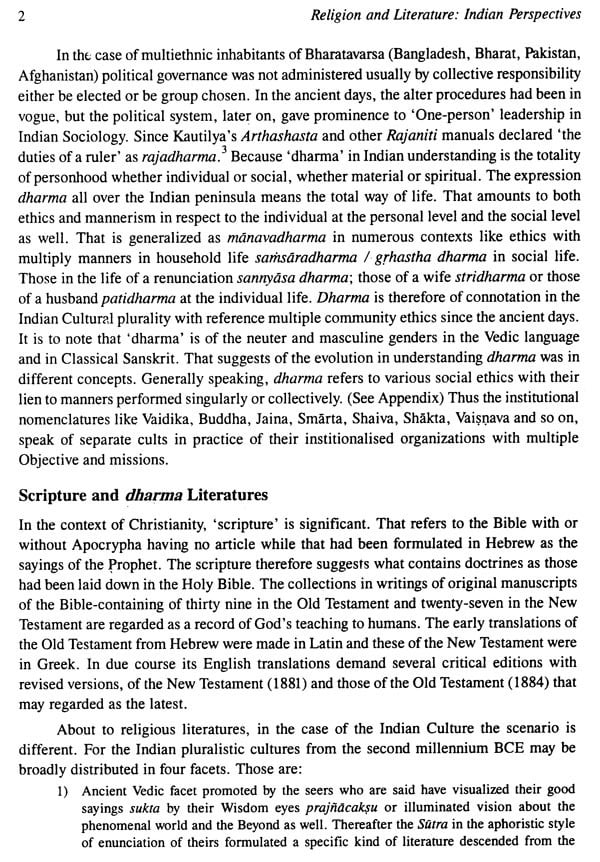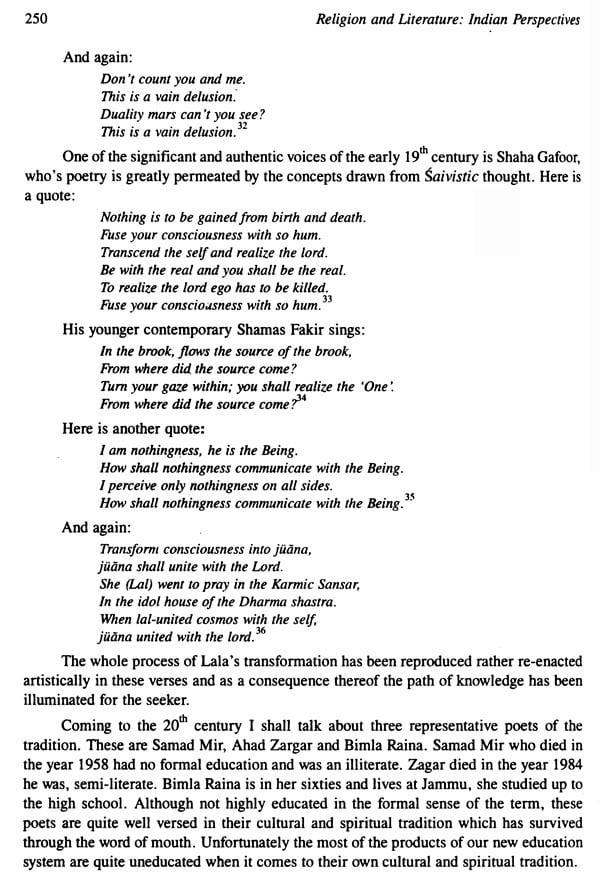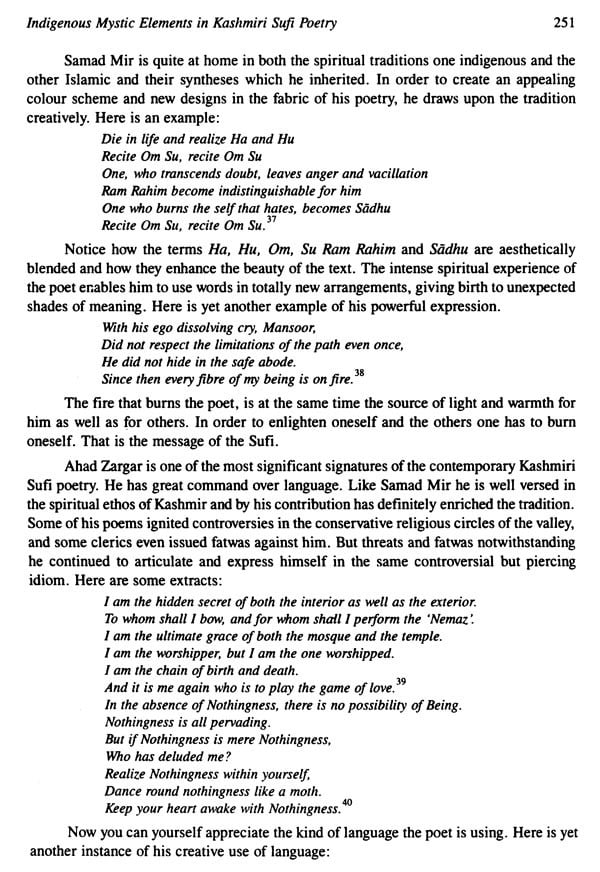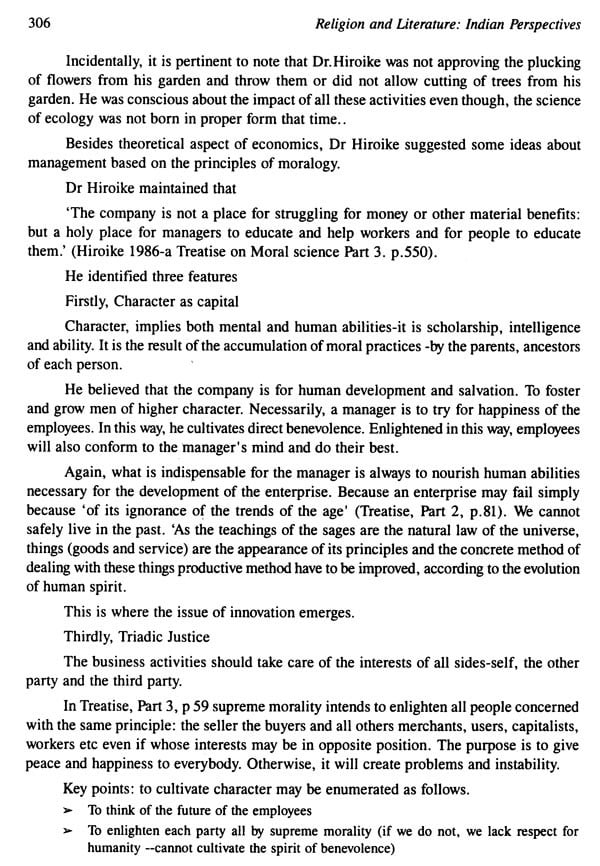About the Book Religion and Literature is deep rooted with in Human society and it can be understand to study the Religion and Literature. So it has occupied a great place in the corpus of knowledge of the Indian Society The Indian Society cannot be examined, interpreted and translated without the help of religion and the literature. It the traditional philosophical faiths, believes which flow to Indian culture and heritage from generation to generation. Religion and literature nature were complementary to each other for the enrichment of culture and tradition in India. Religion acts a significant role in creating the greatest literature. The Indian literature reflects Indian culture and civilization consisting of traditional beliefs and faith which is dharma or religion. The word "religion" translates into modern Indo-Aryan languages is dharma, which means "law". The word dharma is derived from the Sanskrit word 'dry'. The root does not mean only religion in its narrow sense but it means a universal approach of life which is 'to bind' in Indian tradition. It signifies the 'law of being' and the 'fulfillment of that law'. The word dharma is one of the comprehensive terms which are playing a key role in the whole Indian literature. Religion is the belief in and worship of a god or goddess, or in general a set of beliefs explaining the existence of and giving meaning to the universe, usually involving devotional and ritual observances, and often containing a moral code governing the conduct of human affairs.
This volume contains thirty-three research papers in different areas of the religion and literature in India which includes the following facets like: Brahmanical Religion and its literature; Saivaism and Saiva literature; Vaisnavism and Visnava literature; Saktism and Sakta literature; Tantra and Tantric literature; Bhakti religion and Bhakti literature; Buddhism and Buddhist literature; Jainism and Jaina literature; Islam and Islamic literature; Sufism and Sufi literature; Folk religion and Folk literature. The strength of this volume rests on the wide variety presented on the subject as well as projections of the learned scholars on the theme of this book. It is hoped that the readers would be immensely benefitted from the learned exposition of religion as a moral code of our heritage.
About the Author Dr. Projit Kumar Palit is working as a Reader in the Department of History, Assam University, (A Central University), Silchar, Assam. He obtained his Ph.D. degree from Visva Bharati University, Santiniketan, West Bengal. He specializes in various aspect of Art, Religion and History of North East India. He has to his credit of three important books namely Tribal Folk Songs, History of Religion in Tripura, Manuscript and Manuscriptology in India. He was also associated with the editorial work of Art, Volume-VII and Modern India, Volume-Vill of the Cultural Heritage of India,(An Encyclopedia of Cultural History of India), the most prestigious publications of Rama Krishna Mission Institute of Culture, Kolkata. He has completed Research Projects of The Asiatic Society of Bangladesh, Dhaka and Ministry of Culture, Government of India, New Delhi. His various research works have been published in several Journals of national and international repute.
Foreword I am very much delighted to introduce the present volume entitled, "Religion and Literature: Indian Perspectives", edited by Dr. Projit Kumar Palit, who is the Associate Professor in the Department of History and also the Director of Centre for Indological Studies at Assam University (A Central University), Silchar, Assam.
As many as thirty-three distinguished scholars have articulated on various aspects related with religion and literature in India, in the present volume. I am sure readers would be immensely benefited from the learned exposition of religion as a moral code of our heritage. The strength of this volume rests on the wide variety presented on the subject as well as projections of the learned scholars on the theme of this book.
I am confident that this volume will be well accepted by the readers. I congratulate the editor for his sincerity and successful efforts.
Introduction Human society occupied great place corpus of knowledge ancient Indian Civilization. The Indian civilization cannot be examined, interpreted and translated without help religion literature. is the traditional philosophical faiths, which flow. Indian culture and heritage from generation. Religion and literature were complementary each other the enrichment of culture tradition in Religion acts significant role creating the greatest literature. The Indian literature reflects Indian culture civilization consisting traditional beliefs and faith which dharma' religion. The word "religion" translates into modern Indo Aryan languages is dharma, which means "law". Throughout classical South Asia, the study law consisted concepts such as penance through and ceremonial well as practical traditions. The word 'dharma' is derived from the Sanskrit word 'dry. The term 'dharma' does not mean only religion its narrow sense means universal approach life which is 'to bind' in Indian tradition. signifies the 'law of being' and 'fulfillment that law. The word 'Dharma' is one of the comprehensive terms which are playing key role in the whole Indian literature. At this point, of English word "religion". the Latin religion, was in use only to mean "reverence for the God the Goddess, careful pondering of divine things, piety" (which further derived to mean "diligence") Max Muller characterized the religion which was power structure in history. Religion is the belief in and worship of a god or goddess, general set beliefs explaining the existence of and giving meaning to the universe, usually involving devotional and ritual observances, and often containing a moral code governing conduct human affairs. Aspects of religion include narrative, symbolism, beliefs, and practices that are supposed to give meaning to the practitioner's experiences life. Whether the meaning centers on a deity or deities, or an ultimate truth, religion is commonly identified the practitioner's prayer, ritual, meditation, and literature among other things, and is often interwoven with society and politics.
**Contents and Sample Pages**

